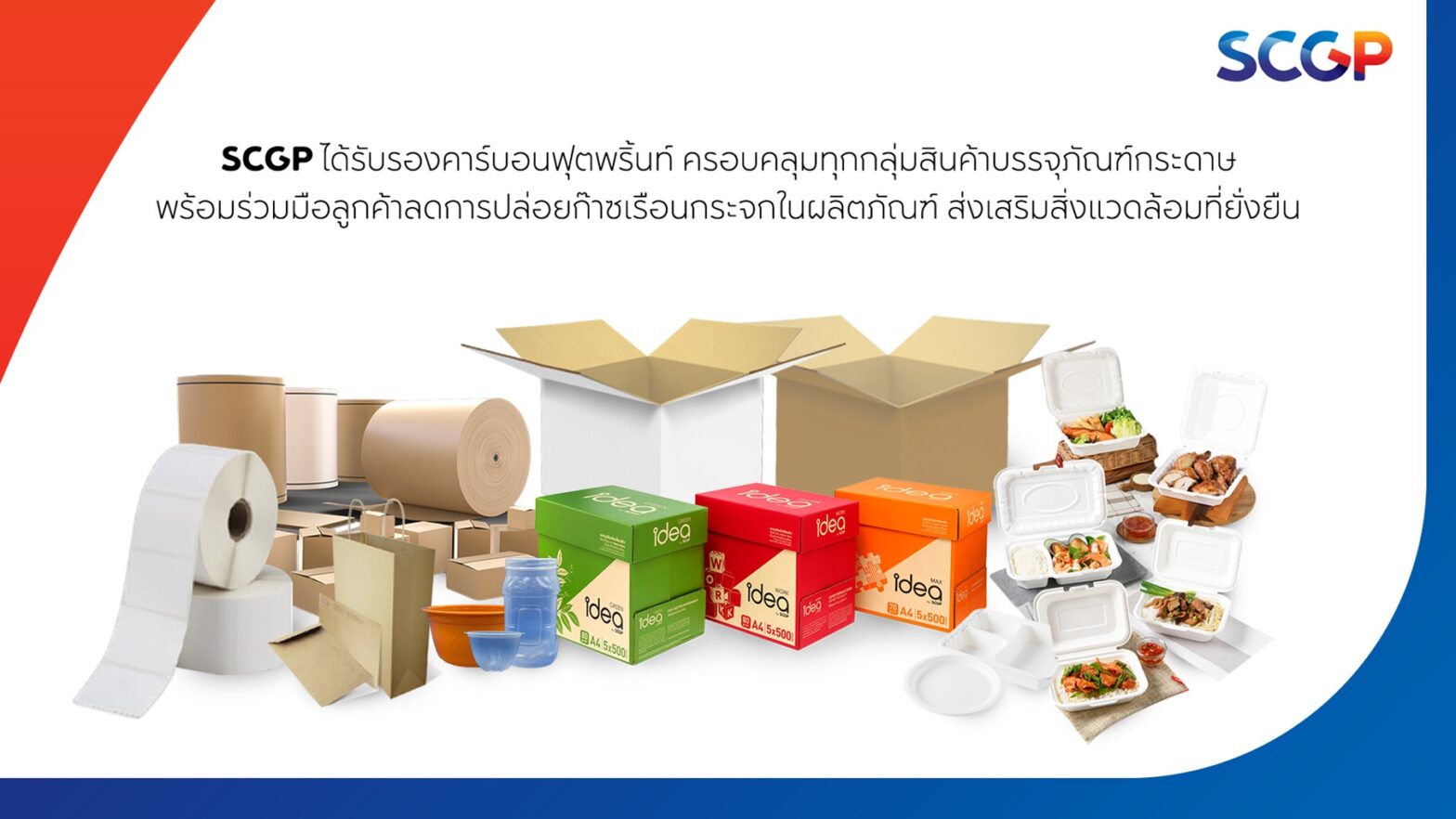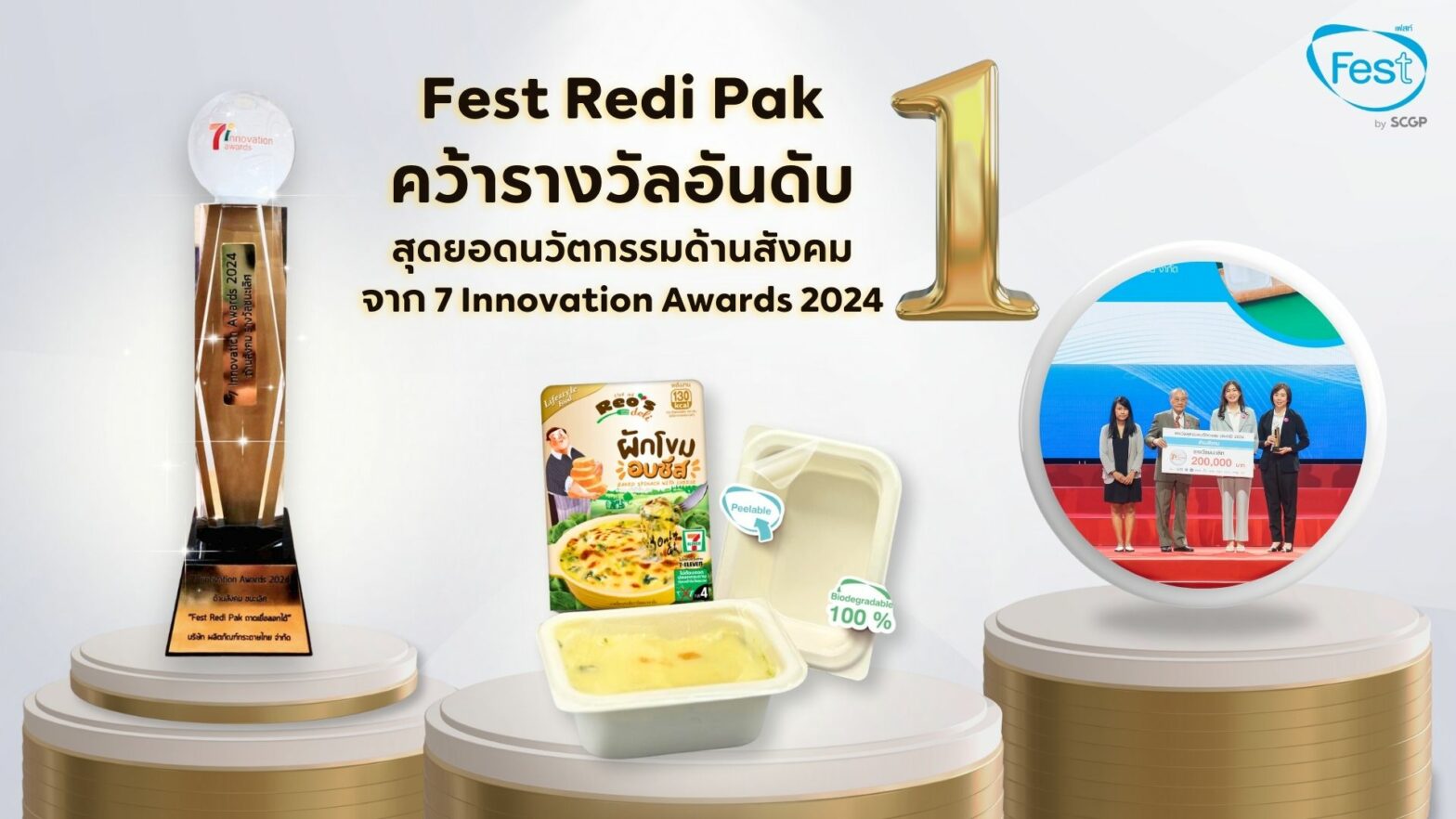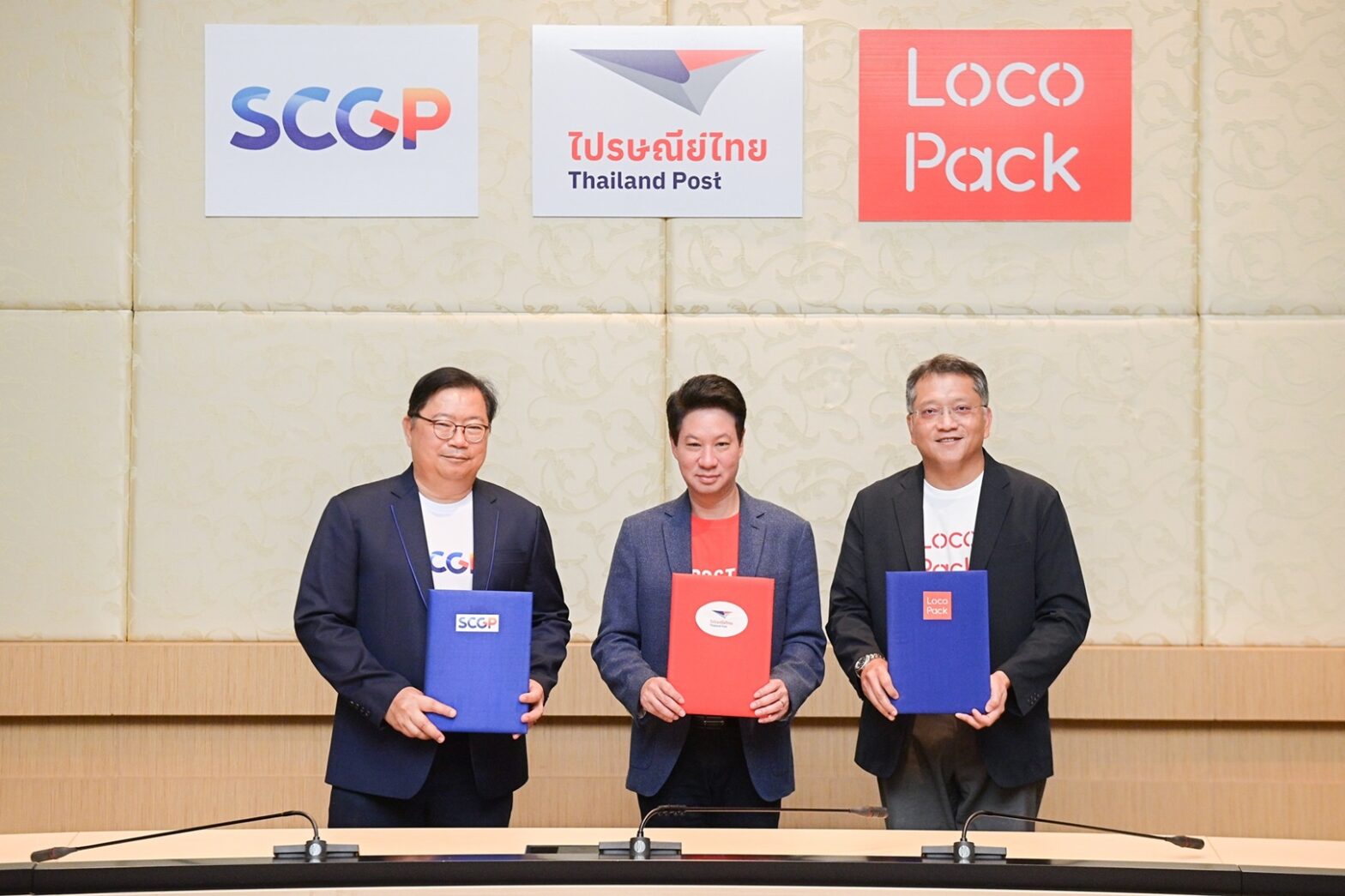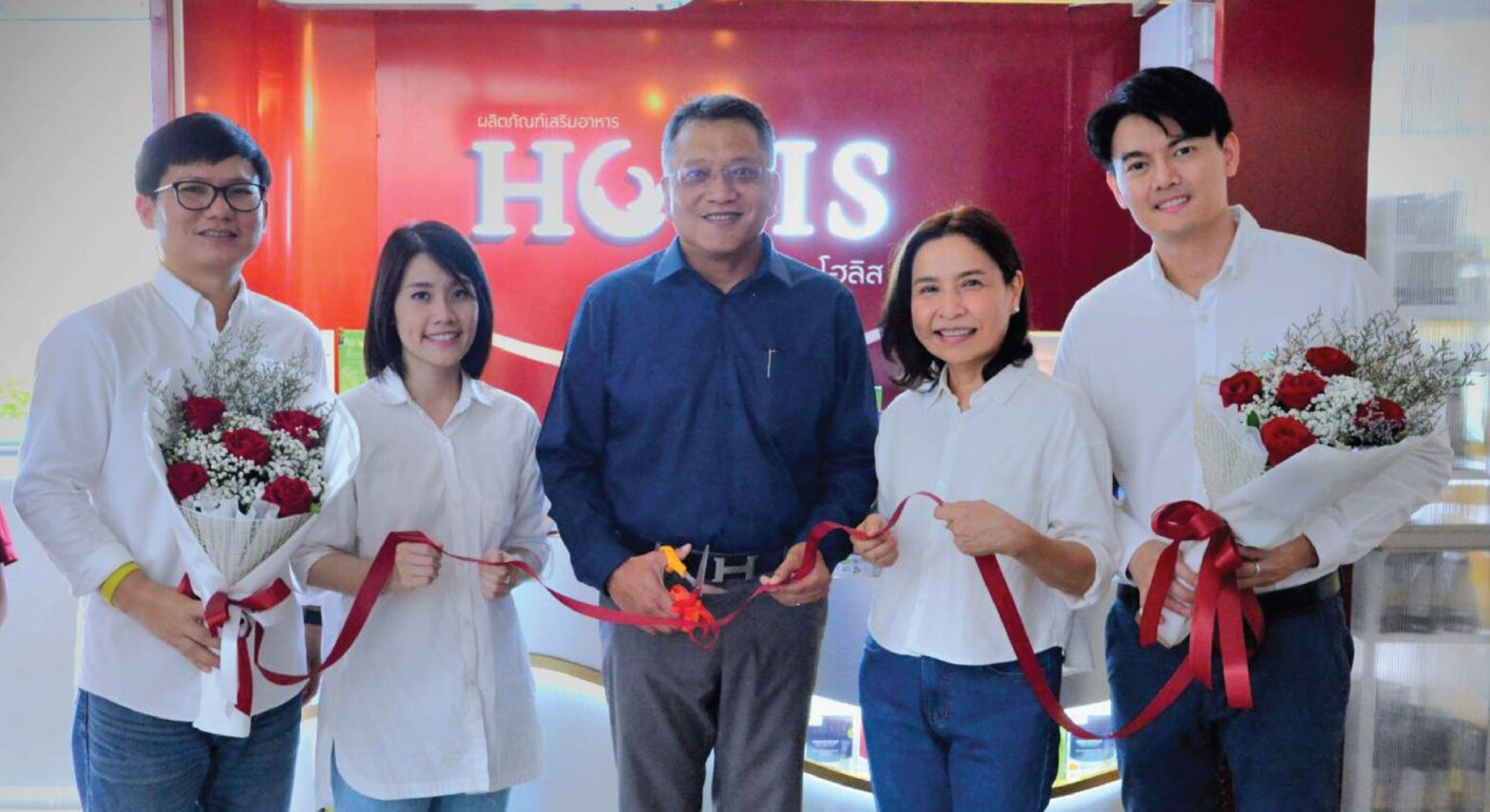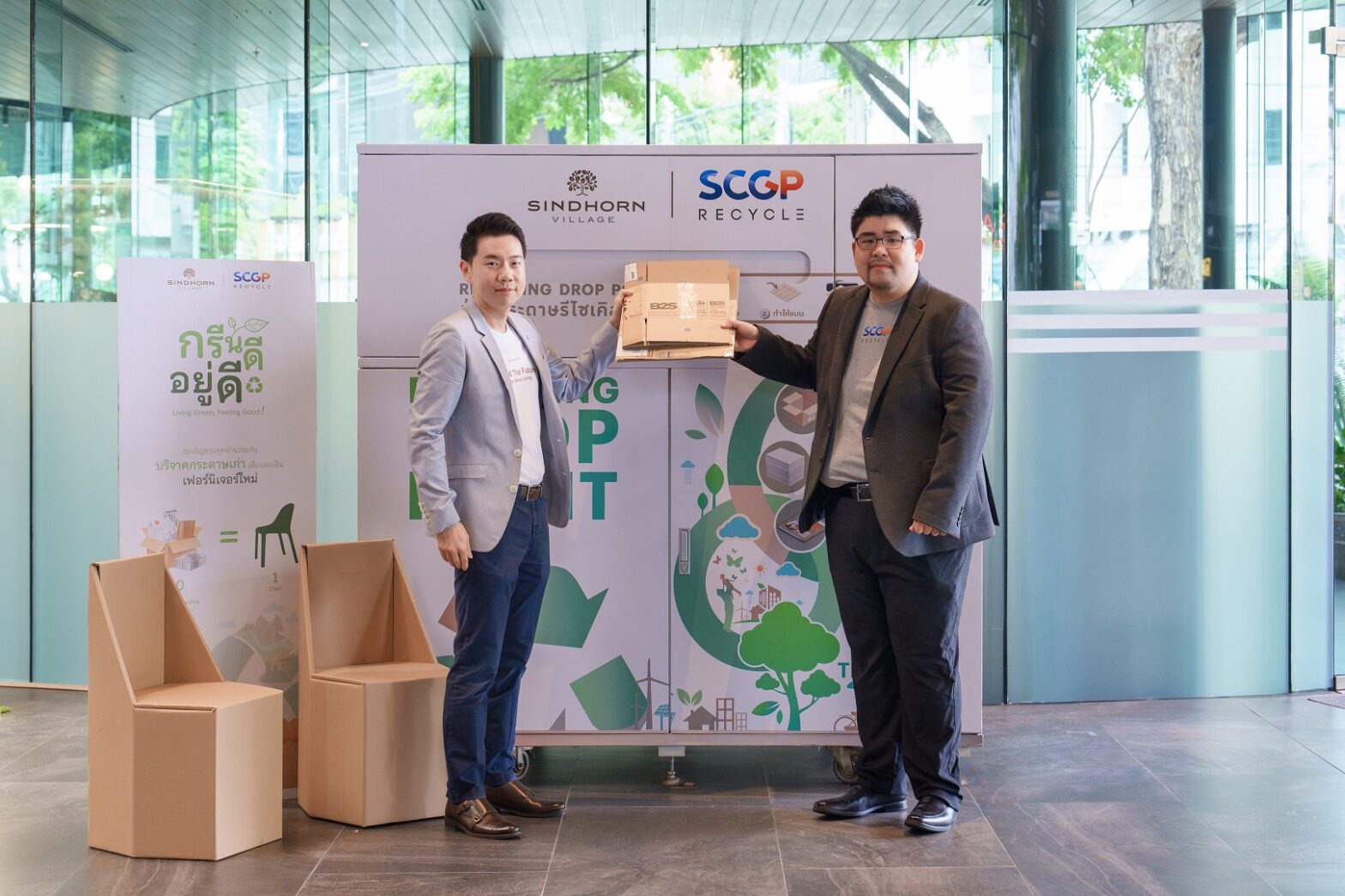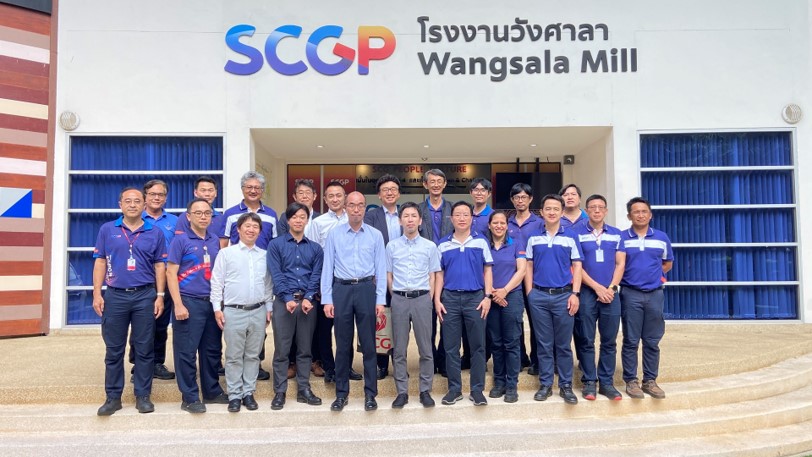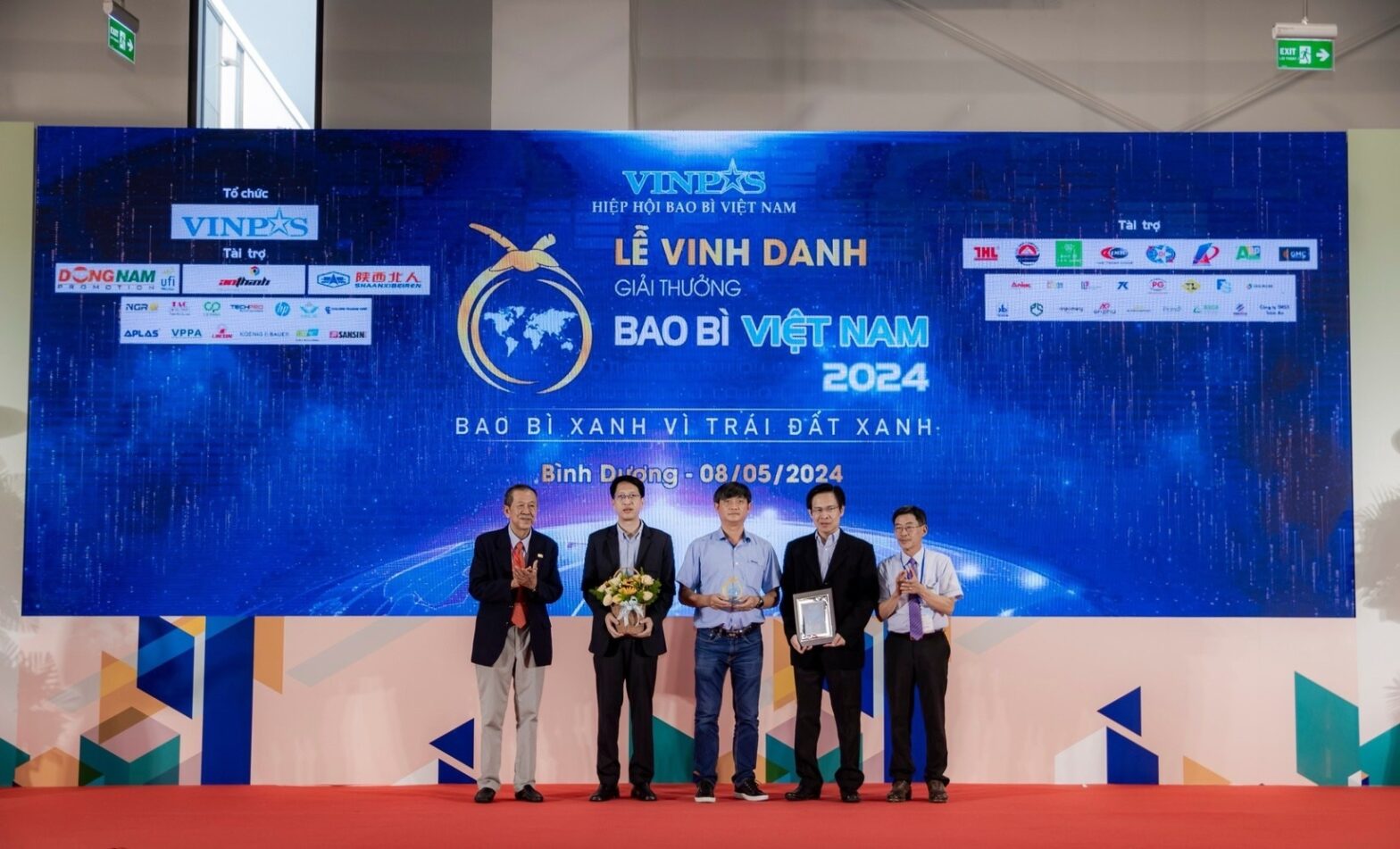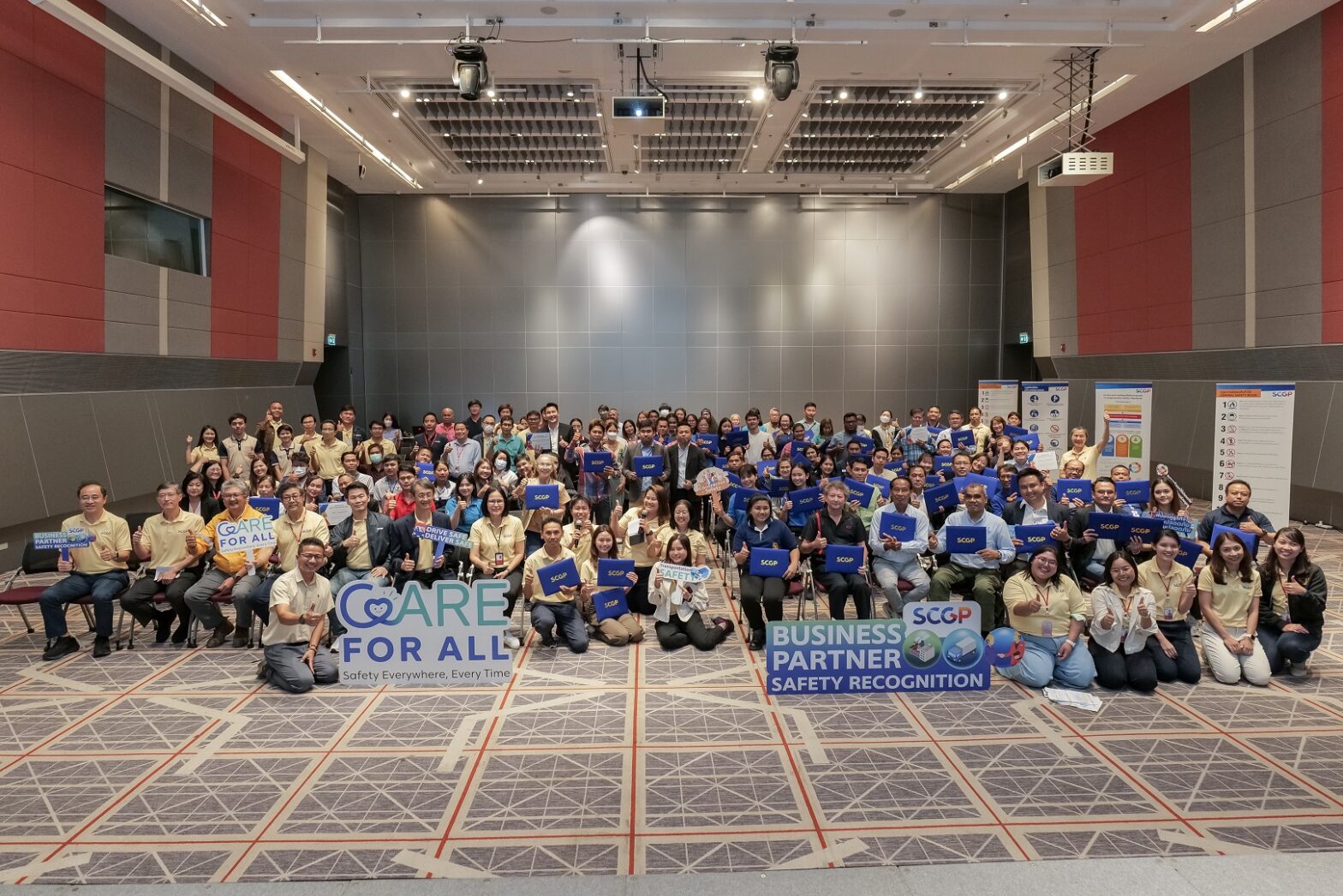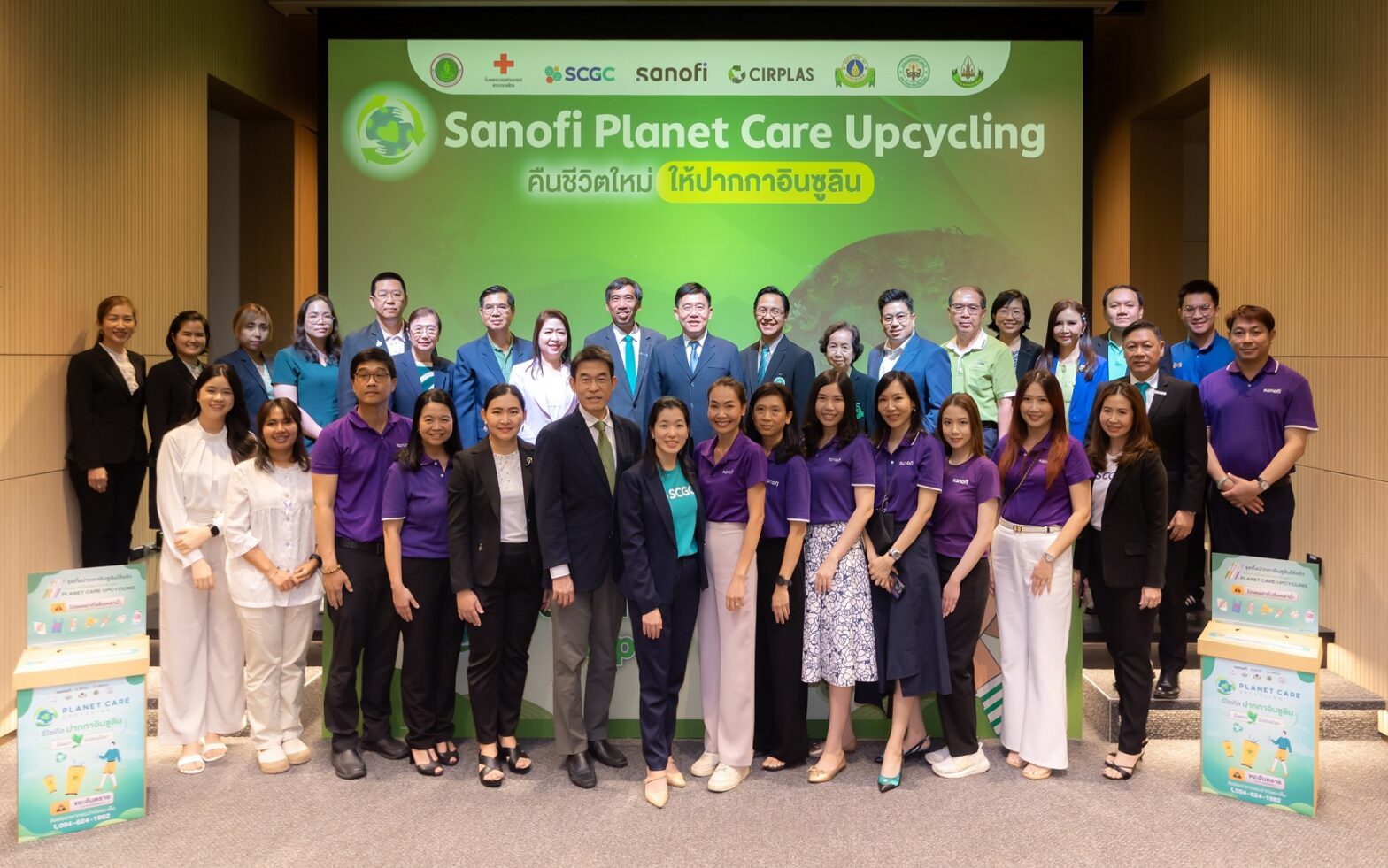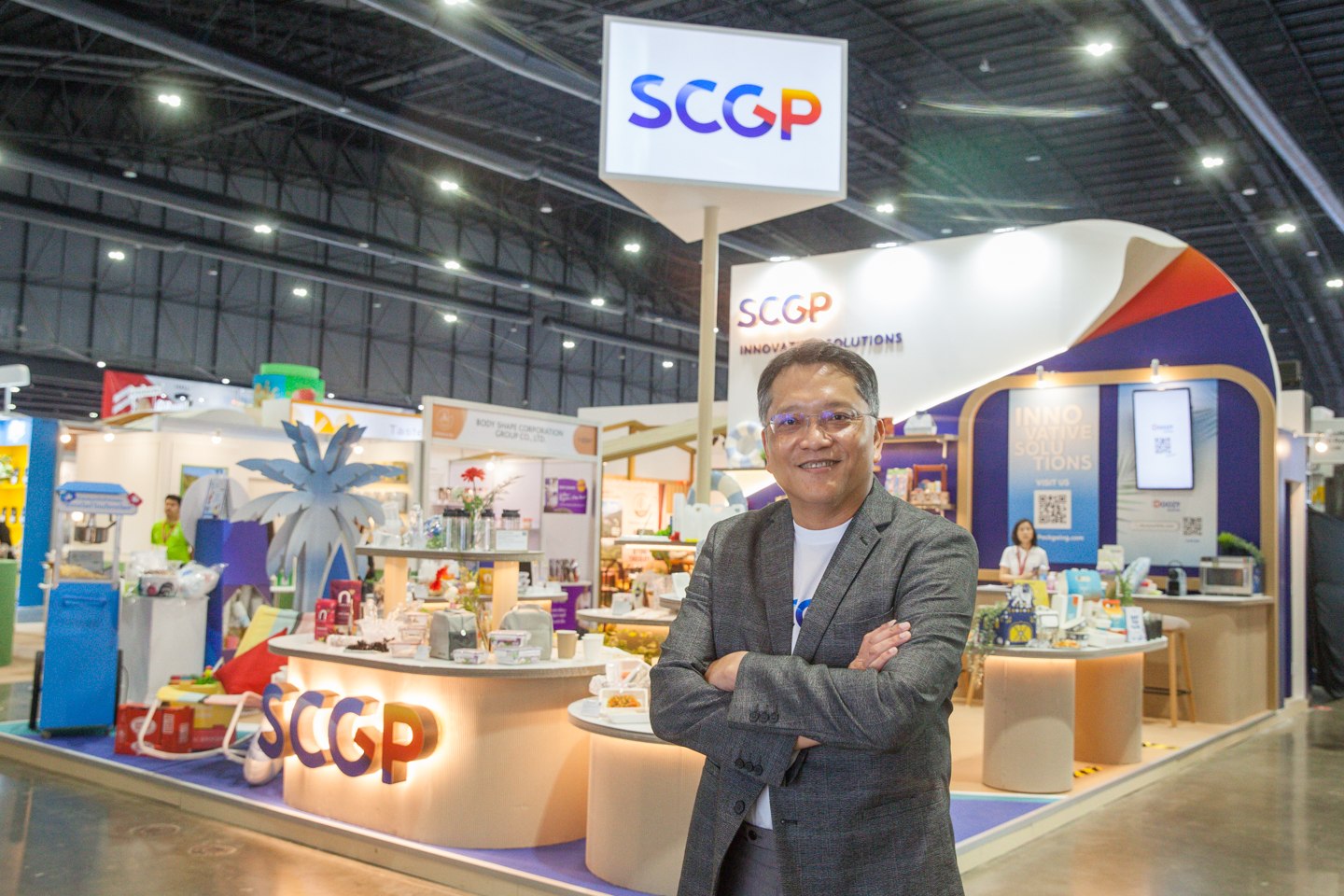News SCGP Achieves Carbon Footprint of Products Certification, including all Paper Packaging SKUs, Ready to Team Up with Customers to Minimize Greenhouse Gas Emissions and Promote Environmental Sustainability Loading Data… SCGP has received certification for the Carbon Footprint of Products manufactured in Thailand from The Thailand Greenhouse Gas Management Organization (Public Organization) or TGO, certifying that the Company can specify the amount of greenhouse gas emissions for a range of products, including pulp, printing and writing paper, packaging paper, paper packaging, foodservice packaging, and plastic packaging. This initiative supports customers in using packaging that reduces greenhouse gas emissions, contributing to a sustainable world. Wichan Jitpukdee, Chief Executive Officer of SCG Packaging Public Company Limited or SCGP, said that SCGP recognizes the importance of creating a low-carbon society, which aligns with the Company’s goal of achieving Net Zero by 2050. SCGP is committed to quality business growth alongside the development of environmentally friendly innovative products and adherence to relevant measures to address climate change, such as those in the European Union, which require the disclosure of greenhouse gas emissions from products. This is to ensure the delivery of environmentally friendly packaging to customers and meet the demands of consumers who prioritize sustainable packaging choices. Recently, SCGP has received Carbon Footprint of Products certification manufactured in Thailand from The Thailand Greenhouse Gas Management Organization (Public Organization) or TGO. These certified products include pulp, printing and writing paper, packaging paper, and plastic packaging, totaling 109 products. Additionally, SCGP has received carbon footprint certification for 16 printing and paper packaging producing processes, covering all paper packaging products under the Cradle to Gate assessment. For the copy paper and foodservice packaging (Fest) products, 19 products have been certified under the Cradle to Grave assessment. This certification provides consumers with information about the total greenhouse gas emissions throughout the entire lifecycle of these products, from raw material sourcing, production processes, distribution, usage, to waste management after the end of life. This Carbon Footprint of Products certification represents SCGP’s commitment to collaborating with customers to develop packaging that reduces greenhouse gas emissions throughout the entire supply chain. This initiative helps customers align their business operations with increasingly stringent environmental regulations enforced by governments in many countries. Additionally, the clear identification of greenhouse gas emissions facilitates consumers in making informed decisions to select products that contribute to mitigating environmental issues. Related Contents Loading Data…
Author Archives: SCGP 3
Fest Redi Pak Received the “Best Socially Beneficial Innovation” Award at the “7 Innovation Awards 2024”
News Fest Redi Pak Received the “Best Socially Beneficial Innovation” Award at the “7 Innovation Awards 2024” Loading Data… “Fest Redi Pak” has received the “Best Socially Beneficial Innovation” award at the “7 Innovation Awards 2024” organized by CP All Public Company Limited. The award product, “Fest Redi Pak”, is a peelable tray made from fiber, designed for chilled & frozen food and ready-to-eat meals, which decomposes within 60 days. This achievement shows Fest’s commitment, in collaboration with Reo’s Deli, to developing environmentally friendly packaging innovations. Fest Redi Pak not only meets functional usage needs but also reflects tangible responsibility towards entrepreneurs, consumers, society, and the environment. Fest continues creating innovation for sustainable packaging innovations to meet consumer demands and contribute to the better world. This award serves as a significant motivation for Fest to advance on the path of sustainability and innovation for society. Related Contents Loading Data…
Thailand Post Partners with SCGP and LocoPack to Launch On-Demand Box and Envelope Production Service, Boosting Product Value and Supporting SMEs
News Thailand Post Partners with SCGP and LocoPack to Launch On-Demand Box and Envelope Production Service, Boosting Product Value and Supporting SMEs Previous slide Next slide Loading Data… Bangkok, July 3, 2024 – Thailand Post partners with SCGP and LocoPack to launch on-demand production of boxes and envelopes. This initiative aims to support SMEs, farmers, agricultural product sellers, processed agricultural goods suppliers, and ornamental fish breeders. Dr. Dhanant Subhadrabandhu, Chief Executive Officer of Thailand Post Company Limited, said, “Thailand Post, in collaboration with SCG Packaging Public Company Limited or SCGP and Invenique Co., Ltd. under the brand LocoPack, supports SMEs, farmers, agricultural product sellers, processed agricultural goods suppliers, and ornamental fish breeders by offering on-demand production of boxes and envelopes. This initiative aims to redesign or adjust the packaging of their products to boost sales and enhance product durability. By utilizing an on-demand production model, we can tailor boxes and envelopes to meet the specific needs of entrepreneurs. Upon request, postal service officers will contact customers to facilitate this service in all areas. By the end of July, Thailand Post, SCGP, and LocoPack will launch the first product: a cubic box (15x15x15 cm) designed to securely and safely contain ornamental pets and goods, featuring a design that adds value to the products.” Surasak Amawat, Director of Technology and Digital Platform at SCG Packaging Public Company Limited or SCGP, said, “SCGP is committed to creating innovative products, services, and integrated packaging solutions while ensuring sustainable operations. We are ready to collaborate with a diverse range of partners, such as in this instance, where Thailand Post, SCGP, and LocoPack share the same goal. We aim to collaboratively design, develop, promote, and produce packaging for Thailand Post’s partners and customers, particularly SMEs and farmers. This group, which is large in number, plays a crucial role in driving the country’s economy. This collaboration will lead to the development of packaging that enhances product quality and market value for our customers and ensures sustainability throughout the entire value chain.” Ekaraj Niroj, Chief Operating Officer of Consumer and Performance Packaging Business and Managing Director of Invenique in SCGP, said, “Packaging plays a crucial role in protecting products and reflecting the unique identity that promotes brand recognition. LocoPack, an integrated packaging design and production platform within SCGP, aims to support entrepreneurs ranging from SMEs to large corporations by enabling them to access and produce customized packaging under their own brands with a minimum order quantity of 100 pieces at affordable prices. We are ready to collaborate with Thailand Post, bringing our expertise to develop packaging that prioritizes product safety and service and ensures delivery to consumers. This partnership also aims to create unique packaging to enhance the value of products for Thailand Post’s partners and customers.” For entrepreneurs interested in on-demand production of boxes and envelopes for repackaging and increasing product value, additional information can be found on the Facebook page of Thailand Post Company Limited or by contacting the Postal Sales and Marketing Department at 0-2831-3581. Related Contents Loading Data…
Holis by SCGP launches first Pop-Up Store driving Brand Engagement and Sustainable Growth
News Holis by SCGP launches first Pop-Up Store driving Brand Engagement and Sustainable Growth Previous slide Next slide Loading Data… On June 11, 2024, Mr. Ekaraj Niroj, Enterprise Marketing Director of SCGP, participated in the grand opening of the first Holis Pop-Up Store at the Siam BTS station. The launch of this Holis Pop-Up Store, marks a significant step in raising brand awareness, enabling direct interaction and engagement with consumers, and increasing sales opportunities, all aimed at achieving sustainable growth for the business. To celebrate the opening, there is a special promotion of “Buy 1, Get 1 Free” on all items. Customers also have a chance to win a MONSTER TEARS Cry Baby model from POP Mart, with one winner drawn daily for 12 days or until stocks last. Visit the Holis Pop-Up Store at Siam BTS Station, Exit 3. The store opens daily from 10:00 A.M. to 7:00 P.M. Related Contents Loading Data…
SCGP Recycle collaborated with the Siam Sindhorn Group on the “Live Green, Feel Good” event to promote the use of natural and recycled products.
News SCGP Recycle collaborated with the Siam Sindhorn Group on the “Live Green, Feel Good” event to promote the use of natural and recycled products. Previous slide Next slide Loading Data… SCGP Recycle, in collaboration with the Siam Sindhorn Group, is organizing the “Live Green, Feeling Good” event from June 26 – 30, 2024, at the Velaa Langsuan project. This event promotes the use of natural and recycled products, inviting everyone to contribute to positive change for a better world. It provides a central city marketplace for quality produce shopping, create smiles, and increase income from community agriculture. and bringing smiles to their faces. The event features natural products, healthy food and beverages, clothing made from natural fibers and recycled materials, and home decorations made from natural materials such as rattan and bamboo. It also promotes efficient resource use in line with circular economy principles. SCGP Recycle will set up a Drop Box at Velaa Langsuan on the ground floor to collect all kinds of used paper for proper and standard recycling according to circular economy principles. Related Contents Loading Data…
Rengo and SCGP Collaborate to Share Experiences in Digital Transformation to Enhance Operations
News Rengo and SCGP Collaborate to Share Experiences in Digital Transformation to Enhance Operations Previous slide Next slide Loading Data… The team of executives from Rengo, headed by Mr. Hideyuki Kashiwagi, Executive Officer – Paper Business Unit, visited Siam Kraft Industry Co., Ltd., Ban Pong and Wangsala Plant. They were warmly received by the executives led by Mr. Wichan Charoenkitsupat, Chief Operating Officer – Packaging Paper Business. The objectives of the visit are for the teams of executives to discuss and exchange experiences on Digital Transformation from both Rengo and SCGP. This encompasses exploring how they integrate digital technology into various areas of business, including Safety, Paper Manufacturing, Energy Operations, Maintenance, Logistics & Warehouse Management, and Environmental Monitoring. This collaboration seeks to improve operational effectiveness across various areas. The executive team, led by Mr. Ekaraj Niroj, Enterprise Marketing Director, along with Mr. Saharath Pattanavibool, Wangsala Mill Director, Mr. Suttipong Poomsrisa-ard, Banpong Mill Director, Mr. Teerachai Chavapongpanit, Energy Director, Mr. Manit Siriworasilp, Asset Performance Management Director, and other pertinent members, engaged in discussions and exchanged valuable insights. Related Contents Loading Data…
BATICO Won Two Awards from Vietnam Packaging Award 2024
News BATICO Won Two Awards from Vietnam Packaging Award 2024 Previous slide Next slide Loading Data… In May, Tin Thanh Packing Joint Stock Company, also known as BATICO, was honored with awards at the Vietnam Packaging Award 2024. Mr. Payungsak Sakulrujar, General Director of BATICO, represented the company at the event, which was hosted by the Vietnam Packaging Associations at the WTC Expo International Exhibition Center in Binh Duong, Vietnam. BATICO received a total of two awards: the Excellence Award in Flexible Packaging for the structure MDO25u/LLDPE160u used in the washing hand liquid, and the Innovative Packaging Award for Flexible Packaging for the structure PET12u/LLDPE125u utilized in the packaging of bran powder for chicken feed. In addition, the event showcased remarkable innovative products, including the Digimarc barcode, an anti-counterfeiting technology that can be verified through a mobile application. This reflects a commitment to developing environmentally friendly packaging innovations. Related Contents Loading Data…
SCGP awarded certificates in “Business Partner Safety Recognition 2023” event, fostering and strengthening safety collaboration together
News SCGP awarded certificates in “Business Partner Safety Recognition 2023” event, fostering and strengthening safety collaboration together Previous slide Next slide Loading Data… SCGP Contractor Safety Management Committee and SCGP Transportation Safety Committee led by Mr. Wichan Charoenkitsupat – Chief Operating Officer, Packaging Paper Business, granted certificates to the company’s business partners in the “Business Partner Safety Recognition 2023” event. The recognition was dedicated to encourage, support, and promote the concept of safety cooperation among contracted and logistics partners. The recipients demonstrated remarkable performances from January to December 2023 as well as meeting the criteria of Contractor and Transportation’s Contractor Safety Recognition program and the consensus of SCGP Safety Committee. A total of 77 partners were honored, consisting of 38 awards for contracted companies and 39 for the transportation department, classifying into 16 Platinum, 20 Gold, 20 Silver, and 21 Bronze. Additionally, the event featured a stage for exchanging directions on safety management in the workplace and transportation operations of SCGP with business partners, conducted by Mr. Manit Siriworasilp – Asset Performance Management Director, Mr. Boonchoo Panjarattanakorn – Logistics Management Department Manager together with the representatives from Platinum-awarded partners. This discussion was aimed to present the prospective structured strategies and examples of initiating the exceptional standard within the company. Ultimately, SCGP aspires the business partners to collaboratively prioritize safety and embody the terms of “Safety Everywhere, Every Time”. This safety commitment was created not only for ourselves, but also families and everyone around us, fostering a mutual practice of safety and care, or “Care for All”. Related Contents Loading Data…
SCGP collaborates in “Sanofi Planet Care Upcycling Program” to transform recycled plastic pellets into new packaging
News SCGP collaborates in “Sanofi Planet Care Upcycling Program” to transform recycled plastic pellets into new packaging Previous slide Next slide Loading Data… Mr. Karan Tejasen, Chief Operating Officer – Healthcare Supplies Business, and Dr.Prinyanee Suttibut, MT. Account Manager – Healthcare Supplies Business, attended the press conference to launched the “Sanofi Planet Care Upcycling Program: Giving a New Life to Used Insulin Pens”, by SANOFI, SCGC and Cirplas. This is the first time in Thailand, that proper recycling into plastic pellets using Advanced Recycling technology is being implemented, and it encourages the “Check, Remove, Dispose” behavior. This project will involve collaboration between SCGC and SCGP to transform plastic pellets, post-recycling, into various forms of packaging to add value, promote resource circulation, and encourage the reuse of resources effectively. This aligns with the ESG principles. It has started in six pilot hospitals; namely, Chulalongkorn Hospital, Thai Red Cross Society, Ramathibodi Hospital, Siriraj Hospital, Bangkok Metropolitan Administration General Hospital, Srinagarind Hospital in Khon Kaen, and Maharaj Nakorn Chiang Mai Hospital. Related Contents Loading Data…
SCGP Drives Packaging Innovations to Bolster Food Security and Sustainability
News SCGP Drives Packaging Innovations to Bolster Food Security and Sustainability Previous slide Next slide Loading Data… SCGP continues to advance sustainable food packaging innovations, aligning with the global trend of ensuring “food security.” This trend prioritizes providing consumers with safe and healthy food that maintains nutritional value while also developing environmentally friendly packaging. By the year 2030, SCGP aims for 100% of its packaging to be reusable, recyclable, or compostable. Ekaraj Niroj, Chief Operating Officer of Consumer and Performance Packaging Business and Enterprise Marketing Director at SCG Packaging Public Company Limited (SCGP), revealed that the company has consistently emphasized the development of “sustainable food packaging innovations.” This initiative aims to achieve food security by ensuring access to safe and nutritious food. Simultaneously, it focuses on creating sustainability and environmental friendliness, aligning with global trends and meeting the needs of customers in the food and beverage industry. “Consumer behavior nowadays places great importance on safe packaging that is free from toxins and contaminants, of appropriate quality, and capable of extending the shelf life and preserving the nutritional value of food. Consumers also seek clear information about food products, such as expiration dates, storage methods, nutritional content, and the use of eco-friendly packaging that is easily recyclable or made from recycled materials. SCGP has continuously developed such innovations to benefit and create a positive experience for consumers,” said Ekaraj. The food security and sustainability packaging innovations developed by SCGP include high-quality and safe packaging, such as OptiBreath. This packaging extends the shelf life of vegetables and fruits by using cutting-edge technology and specialized materials in the Modified Atmosphere Packaging (MAP) system. This system helps prevent contamination of the food inside the packaging, maintains freshness, color, aroma, and taste, and slows the growth of microorganisms. It helps reduce loss and ensures that the food retains its nutritional value for a longer period. Additionally, SCGP has developed R1+, an innovative mono-material flexible packaging made from a single type of plastic, which can easily enter the recycling process. It possesses excellent properties for preventing air and moisture penetration, effectively protecting food products. In terms of foodservice packaging, Fest by SCGP offers solutions that are clean, safe, and can be in direct contact with food while being environmentally friendly. The product line includes Fest Fresh Pak (Frozen), an innovative chilled fresh meat paper tray that can withstand temperatures as low as -40 degrees Celsius. The packaging remains sturdy throughout the packing and transportation process until it reaches consumers. It is made from at least 94% renewable materials that can be replanted. In addition, Fest Redi Pak caters to the frozen and chilled food ready meal tray segment. It helps maintain the freshness and taste of food, with 90% of its main material being eucalyptus pulp, which is biodegradable within 60 days. This packaging is not only attractive and durable but also convenient for microwave heating. Its design ensures even heat distribution, preventing the food from becoming excessively hot or overcooked. “SCGP has allocated an investment budget for the research and development of packaging innovations, averaging 0.5% of annual sales revenue. This demonstrates our commitment to developing sustainable packaging. In 2023, 99.7% of our packaging was recyclable, reusable, or compostable. Our goal is to make 100% of the packaging recyclable, reusable, or compostable by 2030,” said Ekaraj. Related Contents Loading Data…

